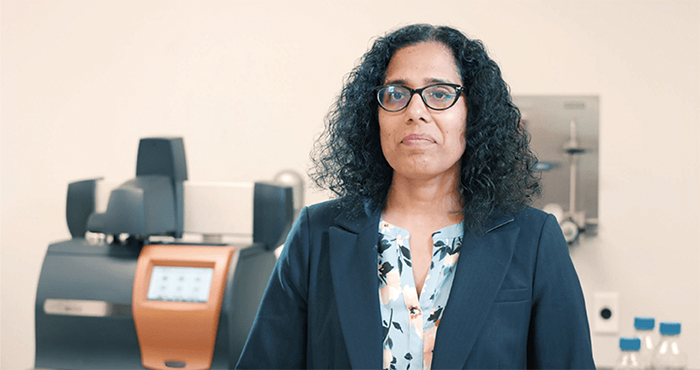
Without satisfied and engaged employees, entire industries can become inefficient and critical talent can be lost to competitor fields. Strong managers are essential to the functioning of an organization by driving improved employee experiences, maintaining retention, and creating stronger outputs – as many leaders are realizing.
The best managers know that adopting a “growth mindset” is crucial. By enabling and encouraging employees to not only grow, but to stretch their experiences, leadership promotes a culture for exploration, innovation, and curiosity – all vital for fulfillment and retention. All these aspects are especially important in the competitive and ever-changing analytical science industry.
But how can leaders in our field make this a reality? Here, I offer four pieces of advice.
First, consider the growth mindset during the hiring process. From forensics to pharma, analytical science is both broad and highly technical. Managers may be looking for backgrounds in mechanical engineering, physics, and materials science – but these same skill sets are also crucial for people in those management positions. The full team needs to be on the same page – especially when it comes to understanding how to use data science to best support customers.
It can be easy for management to pivot to a new candidate if they feel that an applicant does not fit seamlessly into a specific job description, but the best leaders look holistically at candidates to find the right role for today while also thinking about how the candidate might be able to build a career within the company. Recognizing the bigger picture (for example, a candidate’s aspirations and cumulative skills rather than simply prior experience) leads to smarter and more sustainable hiring processes – and more fulfilled employees.
Second, challenge your employees to keep them motivated. For example, R&D and engineering teams need to really understand the customers’ needs and goals – often a big challenge! Empathy and perspective from the customer are crucial here. Being able to connect to the tasks that bring the most value and meaning to the customer is something that, from my experience, really keeps employees energized to do challenging work.
We all have seen how employees can be assigned a set of core tasks based on their past performance and current job responsibilities – often not being considered for more challenging assignments. This isn’t good for anyone. Leadership is responsible for helping employees feel supported as they grow and take on new challenges during their development. As yearly goals and objectives are established, quarterly monitoring can support employees in reaching their targets, while also continuing to expand with new stretch goals.
When an employee is promoted, their past work might not be all they need to help them assimilate into their new role, but a culture of open communication and being a champion of an employee through their learning process makes a meaningful impact. Hosting problem-solving workshops, regular training, one-to-one manager check-ins, and team-building activities are tactics to keep employees engaged, focused, and excited in their career development.
Third, “engage the elephant and the rider!” Psychologist Jonathan Haidt’s analogy can support leadership with understanding and interacting with employees. According to Haidt, each person has two sides: an elephant (emotional, sympathetic, loyal) and a rider (rational, conscious, data-driven). Leaders must strive to satisfy both aspects of the human psyche; when balanced effectively, employees are then aligned with expectations, engagement, and execution.
Of course, given that the analytical science industry is filled with data-driven problems that must be logically thought through, the field undoubtedly attracts more “rider-inclined” individuals. Data and project milestones can help motivate teams of such people and deliver results, as well as instilling a leadership style that makes decisions based on facts and collaboration. This concept resonates especially within the R&D space – it is not just a top-down leadership style, but rather a team collaboration to discuss problems at hand and leverage data and analytics to solve them. But everyone has an emotional side – an “elephant” as Haidt puts it – which is sometimes more difficult for leaders and employees in our field to connect with. But we need to because it can help bring purpose to our work – providing the “why.” And it doesn’t always need to be big picture stuff.
Fourth, encourage strong, empathetic management. Managers are the heartbeat of an organization – a liaison connecting executives and their teams. Strong, empathetic leadership can create the best teams with active listening and a commitment to adjusting for best outcomes. The most effective managers are skilled in their ability to manage (and even exceed) leadership’s expectations, while generating excitement for their teams to drive the best outcomes.
Overall, fostering a growth mindset across an organization – or even within a department – is a long-term, ongoing commitment, but one that is important for any successful leader. Many employees might not know how to grow their careers – especially in an industry as complex as analytical science, so mentoring from managers helps provide the tools and opportunities for sequential growth. To see talent flourish under a manager’s guidance can be one of the most rewarding experiences personally and helps drive success for the business in growing a company’s most important asset: its employees. A commitment to a growth mindset in the workplace is a win-win for all involved.
Kavitha Parvataneni is Senior Director of Research & Development, Waters Corporation




